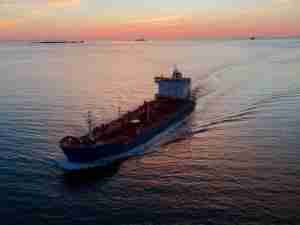Post-Brexit Alliances Forged to Counter German-French Dominance
By: Peter Levring | Apr 19 2017 at 09:42 AM | International Trade
The European Union’s smaller members are busy holding meetings to discuss how to forge alliances that would stop Germany and France dominating the bloc after the U.K. leaves.
The foreign minister of Denmark, Anders Samuelsen, spent the days before the Easter break traveling across the EU to the Czech Republic, Austria and Portugal to meet with governments there and share ideas on how to gain clout in a post-Brexit Europe. The main concern is how to ensure there’s a counterweight to the bloc’s two biggest members, he said.
“The German-French alliance is well-known,” Samuelsen said in a phone interview on Wednesday. “Upcoming elections may influence it, but nonetheless, without the weight of the U.K., the balance of power will change.”
Read more: Juncker outlines paths for the EU after Brexit
Denmark is making a point of broadening its diplomatic alliances beyond the country’s traditional Nordic partners. Prime Minister Lars Lokke Rasmussen will travel to The Hague on Friday for informal talks with his Irish and Dutch counterparts.
Though not everyone is “on the same page,” Samuelsen says his diplomatic efforts have so far received an “enthusiastic” reception. He cited the Czech Republic, a net beneficiary of EU funds, as an unlikely ally on the need to rein in spending in the bloc once the U.K.’s sizable contribution to the budget is removed from the equation.
New Friends
Denmark has openly lamented Britain’s departure from the EU, with the two countries often agreeing on key issues such as defense and free trade. Both opted out of the EU’s common currency and declined invitations for greater cooperation in the field of justice and policing. According to a 2016 report by VoteWatch Europe, a Brussels-based researcher, Denmark was Britain’s closest ally in EU council votes between 2009 and 2015 after Sweden and the Netherlands, siding with the British government in 88 percent of cases.
Although Danish and German interests have also coincided more often than not, there have been instances in which the two disagreed, most recently on the Nord Stream 2 pipeline.
“Our goal is to create a lean and strong EU that’s focused on peace, freedom and trade,” Samuelsen said. “So we’re looking across Europe, to see who we might do well to align with once the British disappear from the equation.”
After hosting Austrian Chancellor Christian Kern on Tuesday, the Danish premier said the two leaders had agreed on the need to cut future EU budgets and boost the role of small and medium-sized members in a post-Brexit era.
This is about taking “care of Danish interests,” Samuelsen said. “And the way to do that is to work with countries we usually work with,” but also to “boost cooperation with countries we used to work with less.”








